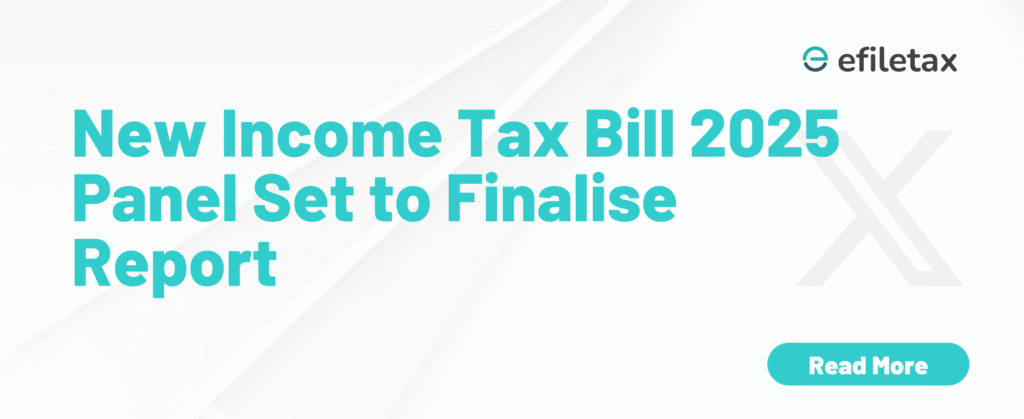
Summary
The bill could overhaul the 1961 Act with simplified, modern tax provisions. Here’s what Indian taxpayers, professionals, and businesses should know.
New Income Tax Bill: What Indian Taxpayers Should Expect
The New Income Tax Bill is inching closer to reality.
This blog explains what’s on the table, how it could affect your taxes, and what to expect next — in plain English.
Why a New Income Tax Bill Now?
India’s economy has changed dramatically since 1961 — from services and startups to globalised trade and digital assets. The existing law has become:
- Too complex with numerous amendments
- Difficult for small taxpayers and startups to navigate
- Outdated in areas like digital income, global transactions, and AI-led businesses
Objective of the new Bill:
To simplify, modernise, and make taxation fairer and future-ready.
Key Proposals Likely in the New Income Tax Bill
1. Simplified Tax Slabs (Keyphrase)
- The new Bill may consolidate or restructure them for clarity
- Expected alignment with inflation and middle-class income growth
Expert View: A flatter, wider slab could improve compliance and reduce litigation.
2. Digital Economy Tax Rules
- Separate treatment of digital assets (like crypto, NFTs)
- Income attribution rules for online services to be clarified
3. Capital Gains Overhaul
- One of the most anticipated changes
- Uniform holding periods and tax rates likely
- Goal: Reduce tax arbitrage between asset classes
| Asset Type | Current Rules | Proposed Change (Likely) |
|---|---|---|
| Listed Shares | 10% after 1 yr | 10% after 2 yrs (expected) |
| Unlisted Shares | 20% after 2 yrs | 15–20% flat (expected) |
| Debt Mutual Funds | 20% w/ indexation | Flat 15% (likely) |
4. Taxpayer Charter 2.0
- Enhanced legal rights for taxpayers
- Time-bound processing and refunds
- More accountability for the Department
Legal Basis: Under Section 119A of the IT Act, a revised Charter may be codified into the new law.
5. Ease for Small Businesses & Professionals
- Presumptive income limits to be revised
- Audit thresholds to be inflation-linked
- Fewer compliance forms and simpler ITRs
Practical Tip: Small traders and freelancers may benefit from relaxed documentation norms and e-verification.
Legal Context: How the Bill Will Be Enacted
- The Committee’s adoption of the report is a recommendatory step
📝 Refer: Parliamentary Committee Portal for official updates.
What Should Taxpayers Do Now?
- Stay updated: Big structural changes will not be overnight, but early awareness helps
- Keep good records: Capital gains and digital income will likely be under tighter scrutiny
Internal link: Read our blog on ITR form changes for AY 2025–26
FAQs on the New Income Tax Bill
Q1: Will the old Income-tax Act be scrapped completely?
Yes. The new Bill is meant to replace the Income-tax Act, 1961 entirely with a modern framework.
Q2: When will it be applicable?
Implementation may start from AY 2026–27 or later, subject to Parliamentary approval and administrative readiness.
Q3: Will TDS and TCS provisions also change?
Likely yes. A restructured law will review procedural compliance like TDS/TCS to reduce redundancy.
Conclusion
The New Income Tax Bill aims to simplify taxes, boost compliance, and support India’s digital growth. As the Parliamentary Committee prepares to adopt its report, taxpayers should start understanding the direction in which tax laws are headed.
Stay ahead of tax changes with Efiletax.
Whether it’s ITR filing, capital gains planning, or small business compliance — we’ve got your back.